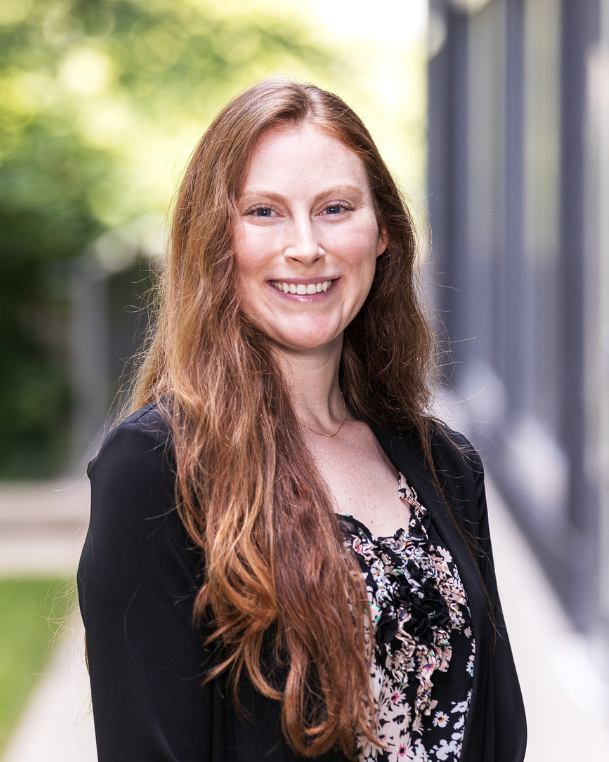
Jacquelyn Bedsaul-Fryer, Ph.D., M.P.H.
NCI Shady Grove | 6E112
Jacquelyn Bedsaul-Fryer, Ph.D., M.P.H., joined DCEG in the Infection and Immunoepidemiology Branch as a postdoctoral fellow through the Cancer Prevention Fellowship Program (CPFP) in September 2024. She investigates the role of Epstein Barr virus sero-immune profiles, viral genetics, and host factors in endemic Burkitt lymphoma in the EMBLEM study, under the mentorship of Sam Mbulaiteye, MBChB, M.Phil., M.Med. She has a dual appointment in the Epidemiology and Genomics Research Program’s Risk Factor Assessment Branch in the Division of Cancer Control and Population Sciences. In this role, she works with Dr. Kirsten Herrick on dietary assessment methods and describing trends in food consumption and micronutrient status in the U.S.
Prior to joining DCEG, Dr. Bedsaul-Fryer earned an M.P.H. with a focus in human nutrition, epidemiology, and statistics from the Johns Hopkins University Bloomberg School of Public Health, Baltimore, Maryland, as part of the CPFP. She earned a Ph.D. in immunology from the Johns Hopkins University School of Medicine in May of 2022 under the mentorship of Dr. Joel Pomerantz. Her work identified the mechanistic basis for a class of primary immunodeficiency disorders called CADINS that lead to frequent infections and autoimmune syndromes in children that manifest in an autosomal dominant manner.
Dr. Bedsaul-Fryer's interest in how malnutrition affects immunity to infections and cancer led her to intern at nonprofit foundation, Sight and Life, as a nutritional immunologist. There, she collaborated towards reducing all forms of malnutrition in low-resource settings. She led efforts to build international collaborations and awareness in sustainable protein sources and novel methodologies to assess complex etiologies for nutrition-related challenges, like anemia. Jacquelyn looks forward to bridging her interdisciplinary interests in the nutrition-infection-immunity space to prevent cancer.